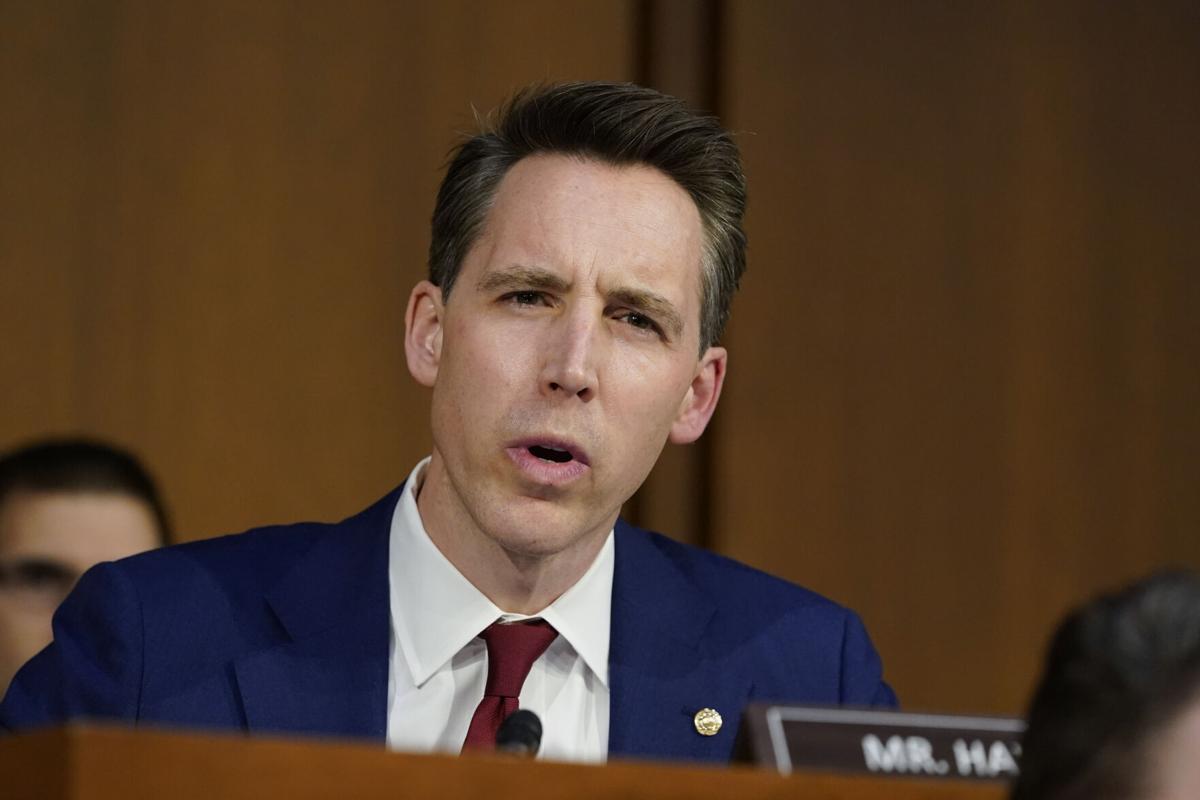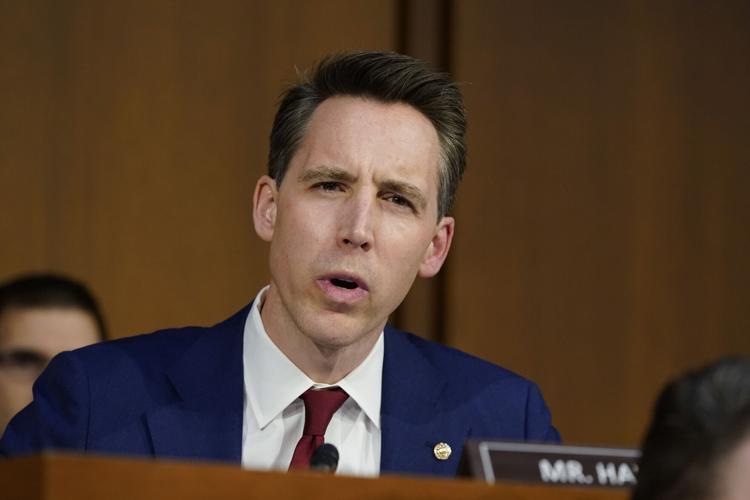IŌĆÖve installed a dishwasher. Replaced a faucet. Fixed a deck. Not one of these tasks was accomplished quickly, efficiently or, as my wife has hinted, competently.
In other words, IŌĆÖm about as qualified to write a book on home repair as Josh Hawley is to write one on manhood.
ThatŌĆÖs not to say MissouriŌĆÖs senior senator doesnŌĆÖt know a thing or two about being a man.

ŌĆ£Manhood: The Masculine Virtues America NeedsŌĆØ┬Ā
By Josh Hawley
Published by Regnery Publishing, 256 pages, $29.99
HeŌĆÖs married, a father and apparently capable of doing bold, manlike things. Like railing against government and corporate officials. Raising a clenched fist like any ŌĆś60s revolutionary wannabe. Setting speed records in the face of danger. Writing provocative tweets that
But his most courageous, manliest move might be writing a book titled ŌĆ£Manhood,ŌĆØ as though , including 165 million males, would welcome instruction on the ŌĆ£masculine virtues America needsŌĆØ from a 43-year-old child of privilege.
People are also reading…
Those virtues include independence, courage, assertiveness, responsibility, industriousness, faithfulness ŌĆö which, of course, are not exclusively male virtues.
Reaction to the book, as Post-Dispatch political columnist Joe Holleman noted, tongue-in-cheek, has been ŌĆ£predictably positive and negative.ŌĆØ
People who admire Hawley ŌĆö which, based on election results, would include most Missouri voters ŌĆö will embrace his message and insight, much of it borrowed liberally from the Bible. People who abhor his politics probably wonŌĆÖt. (Indeed, more substantial reviews than the one you are now reading have dismissed Hawley as a ŌĆ£,ŌĆØ ŌĆ£ŌĆØ and ŌĆ£.ŌĆØ)
And yet, even his harshest critics ought to acknowledge Hawley raises legitimate concerns.
Boiled down: Hawley says there are just too many young American men who are underemployed, underperforming at school and generally underachieving at life. Disengaged and aimless, they fill their days with screens, leisure and pornography. Many are depressed, abuse drugs and commit suicide.
This spells trouble for the United States, Hawley warns, because no functioning republic can survive without virtuous men. Without virtuous men, crime rises, disinterest in work becomes commonplace and, ŌĆ£in perhaps the starkest example of male weakness, fatherlessness abounds.ŌĆØ
According to Hawley, blame largely falls on modern liberalism, whatever that is, and the American ŌĆ£left,ŌĆØ which he says controls the press, the academy and politics. The ŌĆ£left,ŌĆØ he says, ŌĆ£long ago decided that male strength is dangerous (and) seems to welcome men who are passive and tame, who will do as they are told and sit in their cubicles, eyes affixed to their screens.ŌĆØ
Exactly how the left has achieved this result ŌĆö and to what end ŌĆö is hard to discern. Hawley name-checks a cast of heavies, including Greek philosopher Epicurus, Jean-Jacques Rousseau, Karl Marx and Herbert Marcuse. But his descriptions are caricatures, unsophisticated and simplistic, which makes it difficult to find the threads that tie his argument together. He peppers his analysis with anecdotes about his family ŌĆö visiting grandparents, reading to his children, meeting his future wife ŌĆö and lots from Scripture.
So much is left out, though. For an economic populist whoŌĆÖs railed against the export of U.S. manufacturing, itŌĆÖs surprising that thereŌĆÖs no discussion of the wrenching effect of the Great Recession on working-age young people. ThereŌĆÖs no discussion of the legacy of more than 20 years of war and violence. Or the public policies that deepened economic inequality.
Hawley also never addresses his own unrepentant fealty to a president whose masculine ŌĆ£virtuesŌĆØ leave much to be desired. Donald Trump, in fact, is never mentioned.
Still, whether HawleyŌĆÖs ŌĆ£ManhoodŌĆØ succeeds in elevating his national stature or not, it might be worth a read, especially for Missourians ŌĆö before they vote in 2024.
Sen. Josh Hawley, at FlorissantŌĆÖs St. Ferdinand Shrine, answers questions about the primary for MissouriŌĆÖs other U.S. Senate seat on Tuesday, Aug. 2, 2022. Video by Roland Klose















